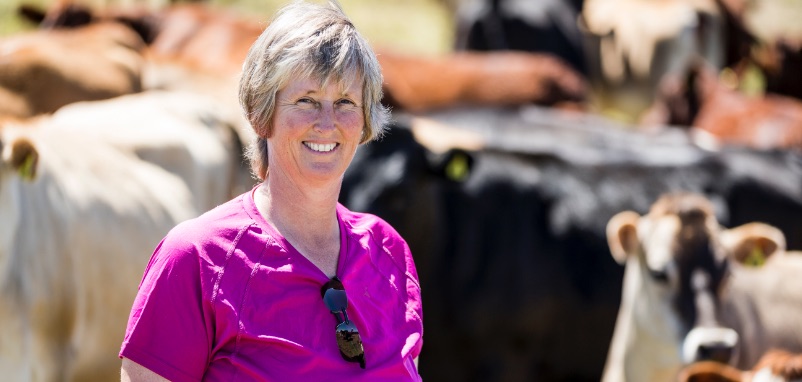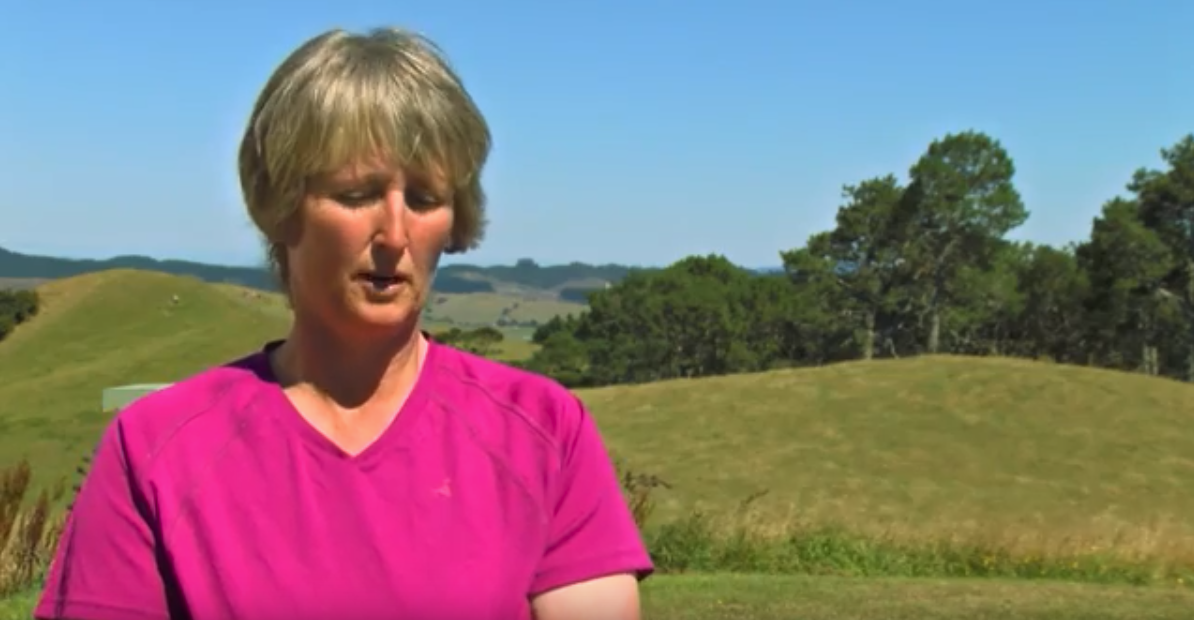“Both red and white clover blossomed everywhere. When you haven’t planted red clover seed and suddenly your farm erupts with red clover everywhere you know something’s been activated. The clover growth and earthworm activity was just phenomenal. We certainly saw steady growth and improvement immediately.”
Quality Product
Louise and husband Greg farm two properties near Thames. They have a 52 hectare dairy farm that milks 156 cows at 3 cows/ha, and a 55 hectare dry stock run-off block that runs 80 head of mixed age dairy replacement cattle and 50 head of mixed age Red Devon cattle. Louise also works part-time for the local vet club.
Louise and Greg have been using Hatuma Dicalcic Phosphate® blend since 2008 and prior to this had been on a lime, RPR, and dolomite with trace element programme.
“We were looking for something that could provide us with the x-factor. I grew up on a farm in the Wairarapa and I recalled how impressed my father was with the Hatuma Dicalcic Phosphate product.”
More Earthworms and Clover
“I did some research and talked to other farmers who were using Hatuma Dicalcic Phosphate and decided to give it a go. Everyone said it would increase earthworm activity and clover and I was so impressed because we noticed an explosion straight away.”
“After the first application of Hatuma Dicalcic Phosphate I couldn’t believe the little volcanos of vermacasts I could see everywhere on the ground. It actually shocked me that the product could make such a phenomenal difference.”
Kind on Waterways
The dairy farm has an annual 720kg/ha of a Hatuma Dicalcic Phosphate®, sulphur, potash, magnesium and trace element blend, while the run-off gets a similar blend at 550kg/ha.
Louise says she was attracted to Hatuma Dicalcic Phosphate® because the non-water soluble product is more environmentally friendly than other fertilisers.
“It’s a nice feeling that we can use a product and we know its not going to end up in the waterways. If you put it on the hillside it might still be there working a few months down the track instead of polluting the waterways.”
One Easy Application
The one easy application is another benefit for Louise. “We certainly find the one application very good on our dry stock unit. Putting lime and phosphate on at the same time means we can save time and it’s more cost effective.
“Hatuma Dicalcic Phosphate also has a neutral ph which is good for our soil. I don’t want to put acidic products onto the soil because I’m very conscious of the soil biology.”
Quality Grass Growth
Louise says after rain the grass just “bolts”. “We’re only 600 feet above sea level but we’re still very exposed to southerly winds and our grass didn’t use to grow until November but that’s changed and we get good grass growth in winter.
“As a result of better growth I have definitely noticed improvements in the condition of the stock. We are getting more days grazing in a paddock so that indicates we are not only getting better quality but better quantity as well. We have applied Hatuma product to the maize paddocks and each time the contractor comments on the quality of our crop.”
Sustainable
Louise says she foresees more restrictions on farming activities, so she is doing everything she can to future proof her farm.
“There’ll be more control of nitrogen use, dairy effluent, phosphates and potassium, so the Hatuma products will have a good niche as they are more sustainable.”
“We’ve made the comment over the kitchen table that we can get product all the way from Waipukurau to the Hauraki Plains, faster than we can from our local suppliers. So all our dealings with Hatuma have been outstanding.”


